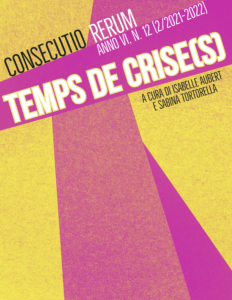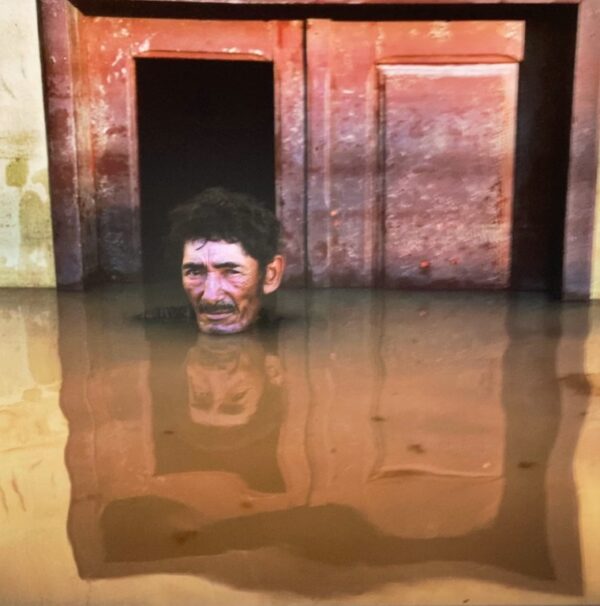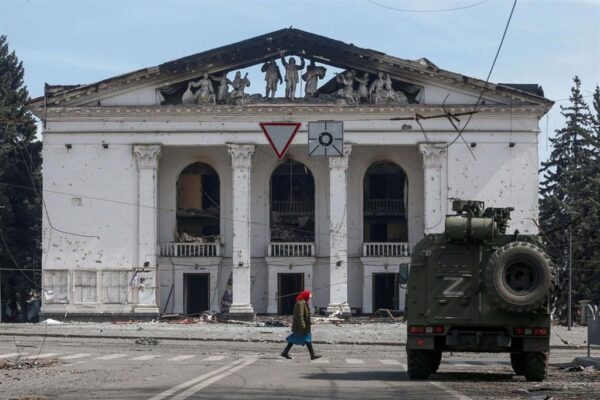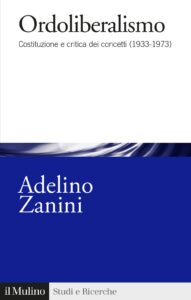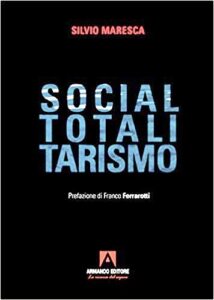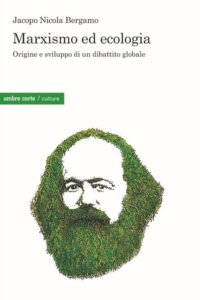Pagine
Condividi e segnala
Tag
- Althusser
- Antropologia
- Baumgarten
- Bourdieu
- Conceivability of Nothingness
- Conciliation
- corpo
- Derrida
- Dialectics
- Difference
- distinzione
- Europe
- Expression
- giudizio
- Grace
- Habitus
- Heidegger
- Hobbes
- Kant
- linguaggio
- Lyotard
- marxismo
- Medieval Aristotelianism
- Metaphysics
- Nature
- Negative
- Nichts
- nihil
- Nihilism
- nihil negativum
- nihil privativum
- Non-identical
- Nothing
- Nothingness
- onore
- politica
- postmoderno
- pratica
- riconoscimento
- Smith
- solitudine
- Sovranità
- Spinoza
- Thomas Aquinas
- Western Ontology
-
Articoli recenti
Link
Archivi categoria: NUMERO 12
Consecutio rerum, anno VI, N. 12 (2/2021-2022)
Pubblicato in Copertina, NUMERO 12
Lascia un commento
Indice
Editoriale
ISABELLE AUBERT ET SABINA TORTORELLA, Un présent en crise.
Monografica
ÉTIENNE BALIBAR, Mi-temps de la crise. Expériences, questions, anticipations
ELSA BANSARD, La pandémie de Covid-19 est-elle une “crise sanitaire”?
MARIE GOUPY, La signification des pouvoirs de crise économiques chez Eric Posner et Adrian Vermeule: temporalité du droit et fin de l’histoire
RAINER FORST, Zwei schlechte Hälften ergeben kein Ganzes. Zur Krise der Demokratie
SABINA TORTORELLA, L’autorité en crise. Une confrontation entre Alexandre Kojève et Hannah Arendt
GALATÉE DE LARMINAT, Gramsci, penseur de l’hégémonie en ses crises
FRANCK FISCHBACH, Critique sociale et crise écologique
NICOLAS PIQUÉ, Crise,
… Continua a leggere
Pubblicato in Indice, NUMERO 12
Lascia un commento
Un présent en crise
Download
DOI: 10.5281/zenodo.7406259
Isabelle Aubert
Université Paris 1 Panthéon-Sorbonne, Institut des sciences juridique et philosophique, CPCS/NoSoPhi
(isabelle.aubert@univ-paris1.fr
Sabina Tortorella
FMSH, Université Paris 1 Panthéon-Sorbonne, Institut des sciences juridique et philosophique, CPCS/NoSoPhi
(sabina.tortorella@gmail.com

1. L’actualité médiatique autant que les analyses du présent menées par les sciences sociales et environnementales, la philosophie politique ou l’économie – pour ne citer que quelques disciplines – rendent compte d’un usage récurrent et inédit du terme de “crise”. À les en croire, l’époque contemporaine aurait pour trait caractéristique d’être toujours ébranlée par une ou plusieurs crise(s) […]. … Continua a leggere
Pubblicato in Editoriale, NUMERO 12
Lascia un commento
Mi-temps de la crise. Expériences, questions, anticipations
Download
DOI: 10.5281/zenodo.7406812
Étienne Balibar
Département de Philosophie, Unité de recherche Sophiapol, Université Paris Nanterre
(etiennebalibar@orange.fr)
Gideon Mendel. Chinta and Samundri Davi, Salempur Village, Bihar, India, August 2007
Interval of the Crisis. Experiences, Questions, Anticipations
Abstract: Written in the midst of the pandemic in 2020, this article aims to interrogate the current period of crisis and its challenges from the double meaning of the Greek term, thus highlighting the close links between medicine and politics. In the first part, the contribution focuses on the emergence of protests against state racism in the United States and on the “Black … Continua a leggere
La pandémie de Covid-19 est-elle une “crise sanitaire”?
Download
DOI: 10.5281/zenodo.7406540
Elsa Bansard
CNRS/MSH Paris Saclay, Laboratoire SPHERE
(elsa.bansard@ens-paris-saclay.fr)
Gideon Mendel. Heff and tracy Warer’s-Staines-upom-Thames, Surrey, UK, February 2014
Is the Covid-19 Pandemic a “Health Crisis”?
Abstract: We will question the uses of the term “crisis” on the occasion of the Covid 19 pandemic. To do so, we will analyze the discourses of researchers in the Humanities and Social Sciences in the media in France, from March 1st 2020 to June 1st 2022. The aim is to understand how the SHS have deconstructed the qualification of the pandemic as a health crisis in order to propose … Continua a leggere
La signification des pouvoirs de crise économiques chez Eric Posner et Adrian Vermeule: temporalité du droit et fin de l’histoire
Download
DOI: 10.5281/zenodo.7406555
Marie Goupy
Institut Catholique de Paris, LLCP-Université Paris 8
(m.goupy@icp.fr)
Gideon Mendel. João Peira de Argúia, Taquari District, Rio Branco, Brazil, March 2015
The Meaning of Emergency Economic Powers in Eric Posner and Adrian Vermeule’s Theory: Temporality of Law and End of History
Abstract: This paper aims to question the transformation of the legal concept of crisis, through that of emergency powers, notably linked with their extension to new fields of application, in particular, to economy. To do so, it proposes to expose the analysis of two American jurists, Eric A. Posner and Adrian … Continua a leggere
Zwei schlechte Hälften ergeben kein Ganzes. Zur Krise der Demokratie
Download
DOI: 10.5281/zenodo.7406831
Rainer Forst
J. W. Goethe Universität Frankfurt am Main, Institut für Politikwissenschaft
(forst@ em.uni-frankfurt.de)
Gohar Dashti. Today’s Life and War
Two Bad Halves Don‘t Make a Whole. On the Crisis of Democracy
Abstract: This article argues that democracy is currently in a fundamental crisis, disintegrating into two halves that are both truncated and no longer able to form a whole. The first half is that of nationalist-majoritarian populism (in both right and left wing variants), which seeks to regain control of national finances as well as borders through nationalist policies. In this populist halving, … Continua a leggere
L’autorité en crise. Une confrontation entre Alexandre Kojève et Hannah Arendt
Download
DOI: 10.5281/zenodo.7406847
Sabina Tortorella
FMSH, Chaire Ethique et Finance/Université Paris 1 Panthéon-Sorbonne, Institut des sciences juridique et philosophique, CPCS/NoSoPhi
(sabina.tortorella@gmail.com)

Authority in Crisis: A Confrontation between Alexandre Kojève and Hannah Arendt
Abstract: Although at first glance the profiles of Hannah Arendt and Alexandre Kojève could not be more different from each other, the respective interests of the two philosophers converged around the same time on the notion of authority. In this article I aim to conduct a comparison between the two, emphasizing that their reflections find their starting point in a condition of the crisis of … Continua a leggere
Gramsci, penseur de l’hégémonie en ses crises
Download
DOI:10.5281/zenodo.7406889
Galatée de Larminat
Université Paris-I Panthéon-Sorbonne
(galatee.delarminat@gmail.com)

Gramsci: Reflections on Hegemony in Crisis
Abstract: This article seeks to explore Antonio Gramsci’s analysis of history, developed in the 20th century between both World Wars, a period of critical importance and change, much like the one we are ourselves living through. This article chooses to interrogate the notion of modernity through that of crisis, the apparent highlight of modernity’s failures. Hegemony, a central concept in the historical philosophy developed by Gramsci, is indissociable from the notion of crisis. This article argues that Gramsci’s work holds both theoretical and … Continua a leggere
Pubblicato in Monografica (III), NUMERO 12
Lascia un commento
Critique sociale et crise écologique
Download
DOI: 10.5281/zenodo.7406924
Franck Fischbach
Université Paris 1 – Panthéon-Sorbonne – UFR de philosophie/Centre d’Histoire des philosophies modernes de la Sorbonne, HIPHIMO, EA 1451
(franck.fischbach@univ-paris1.fr)
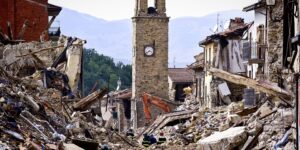
Social Criticism and Ecological Crisis
Abstract: In contrast to North American eco-Marxism, whose tendency is to go back to Marx, bypassing Critical Theory and minimising its contribution, we attempt here to defend the idea that theoretical and critical resources for confronting the ecological crisis do exist in the Frankfurt tradition and that they reside in the set of means with which it has equipped itself in order to elaborate in an original way … Continua a leggere
Pubblicato in Monografica (III), NUMERO 12
Lascia un commento
Crise, discordance des temps et strate
Download
DOI: 10.5281/zenodo.7406949
Nicolas Piqué
Université Grenoble Alpes
(nicolas.pique@univ-grenoble-alpes.fr)
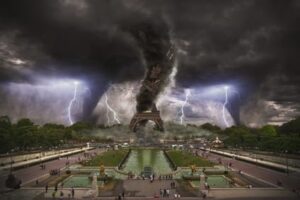
Crisis, Time Discordance and Stratum
Abstract: The analysis of the notion of crisis leads to an alternative: to recognize it as an unsurpassable characteristic reality of modern temporality or, on the contrary, to see it only as a moment of continuous temporality. From the works of historians, the notions of time discordance and rupture will be analyzed as symptoms of a discontinuous modern temporality, making the crisis a fundamental and unsurpassable characteristic. In this theoretical framework, the notion of stratum will appear as the outcome capable of accounting … Continua a leggere
Un gioco di specchi: il “fantasma” della crisi nella Teoria dei sistemi sociali di Niklas Luhmann
Download
DOI: 10.5281/zenoDo.7406966
Eugenia Gaia Esposito
Sapienza Università di Roma, Dipartimento di Scienze Politiche
(eugeniagaia.esposito@uniroma1.it)
Guerra in Ucraina, Mariupol, Reuters
A Game of Mirrors: The ‘Ghost’ of Crisis in Niklas Luhmann’s Social Systems Theory
Abstract: The article reconstructs the articulations that the concept of crisis (not) assumes within Niklas Luhmann’s Social systems theory. What is investigated is precisely the absence of a configuration of the phenomenon of crisis within the theory, which is the result of the general approach that Luhmann chooses to give it. In the first paragraph there is an analysis of the Social systems … Continua a leggere
Nostalgie metafisiche: la crisi delle scienze nell’era postmoderna
Download
DOI: 10.5281/zenodo.7406991
Giulia Bergamaschi
Università di Bologna
(giulia.bergamaschi5@unibo.it)
Il teatro di Mariupol, Reuters
Metaphysical Nostalgia: the Crisis of the Sciences in the Postmodern Era
Abstract: By crisis of sciences we mean, on the one hand, the epistemological crisis faced after the aporias of logical neo-positivism and the crisis of foundations that invests hard sciences; on the other, the questioning of their role concerning the social contract. These two aspects intertwine and feed each other, and both are objects of the so-called ‘postmodern’ critique. In this essay we will try to describe and analyze the profound dismay … Continua a leggere
La natura giuridica della cosa secondo il giovane Marx. Casualità, necessità e libertà negli articoli del 1842-1843
Download
DOI: 10.5281/zenodo.7407003
Guido Alimena
Dipartimento di Scienze Politiche, Università di Teramo
(guidoalimena@gmail.com)
Jenny von Westphalen, moglie di Karl Marx
The Legal Nature of the Thing according to the Young Marx. Casualty, Necessity and Freedom in the Articles of 1842-184
Abstract: The concept of the nature of things is at the heart of the young Marx’s philosophy of law. In his articles of 1842-1843, the expression juristische Natur der Sache alludes to an ontological and rational structure of law from which the legislator cannot deviate. The law will concretely be a universal and rational form when it … Continua a leggere
Pubblicato in NUMERO 12, Varia
Lascia un commento
Il rapporto sociale «che si presenta in una cosa». Legge del valore, carattere di feticcio e metodo della critica dell’economia politica: una lettura del primo capitolo del Capitale
Download
DOI: 10.5281/zenodo.7407033
Federico Simoni
Università di Bologna
(federico.simoni3@studio.unibo.it)
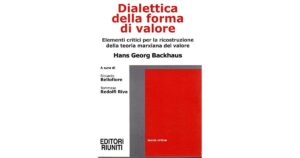
The social relationship «presenting itself in a thing». Law of value, fetish-character and the method of the Critique of political economy: an interpretation of the first chapter of Capital
Abstract: The first chapter of Marx’s Capital revolves around the connection between the criticism of commodity fetishism (arising from the non-illusory fetish-character of commodities and money) and the theory of its value. The latter seeks to explain the very commodity-form of the product of labour; the former, its distorted, naturalized and abstract manifestation at the cognitive ‘surface’ of modern market … Continua a leggere
Pubblicato in NUMERO 12, Varia
Lascia un commento
Ordinamenti e sguardo antropologico. SuOrdoliberalismo di Adelino Zanini
Pubblicato in NUMERO 12, Recensioni e segnalazioni
Lascia un commento

